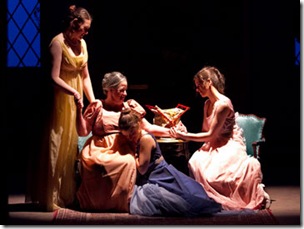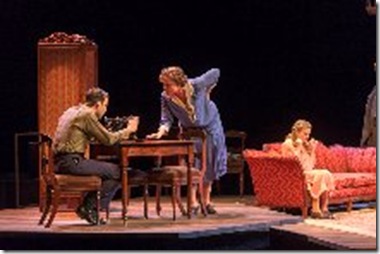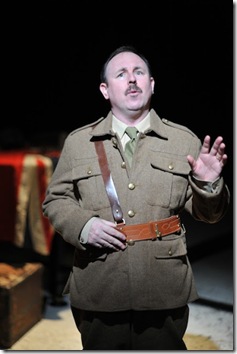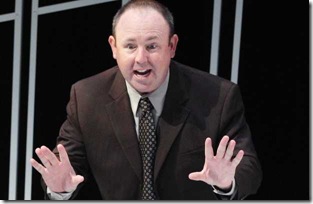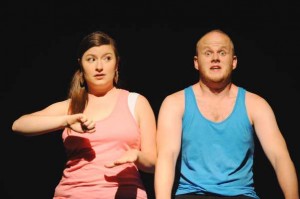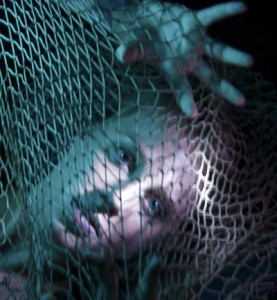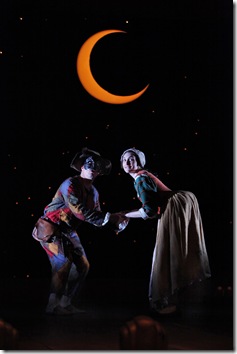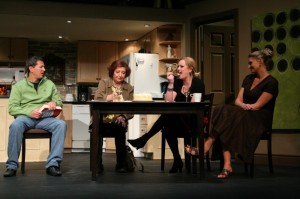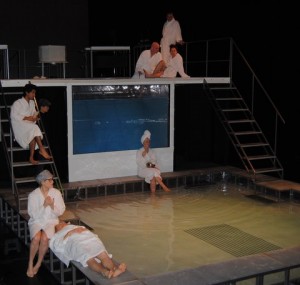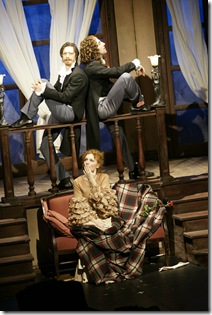Pride and Prejudice: OLT’s Page to stage of a classic novel is a major challenge
Photo: Maria Vartanova
Condensing any novel into a two-act stage play is a challenge. Many have tried to present the key aspects of Jane Austen’s best-known classic, Pride and Prejudice, on stage and screen. In general, the screen versions have been more successful because they offer broader scope for conveying both the atmospher and content of Austen’s rich novel.
Ottawa Little Theatre selected the Helen Jerome version for its 100th season as the 1930s representative (which it also included in its 1995-1996 season). Jerome is fairly faithful to the text of the novel, although she has removed two of the Bennett daughters and added a maid in the Gardiner household. However, in 2013, the wordiness of her adaptation creaks more than a little.
